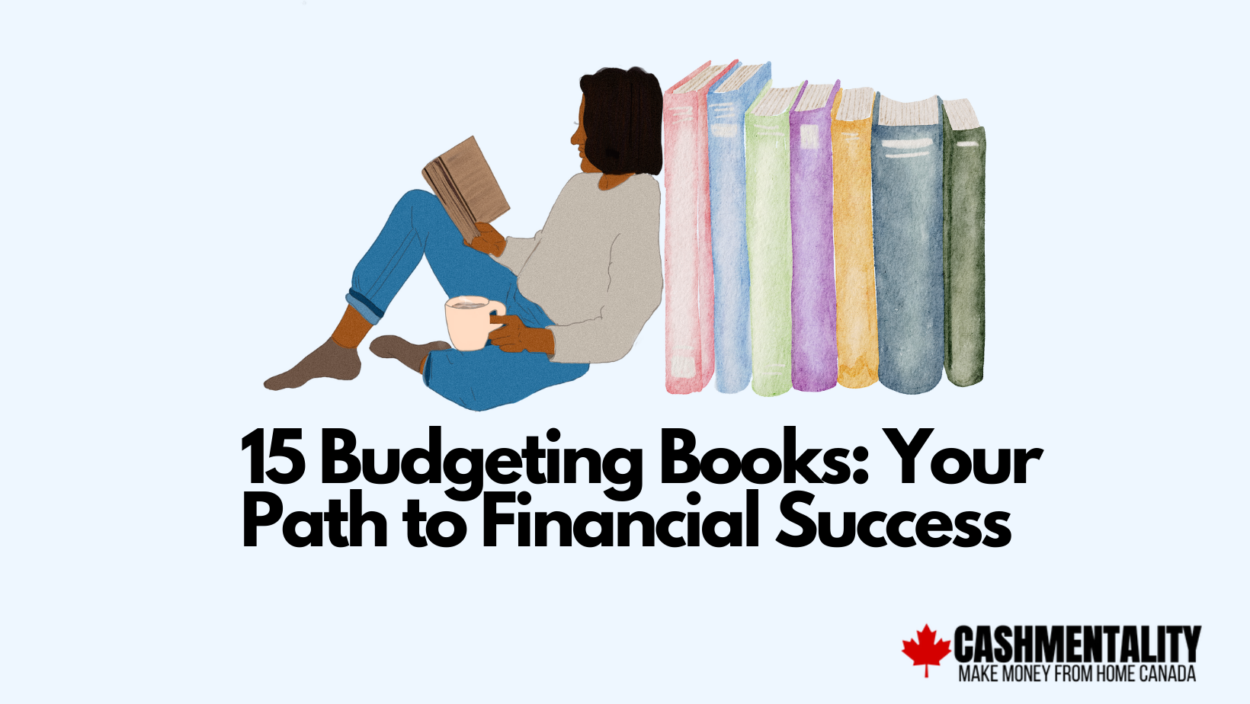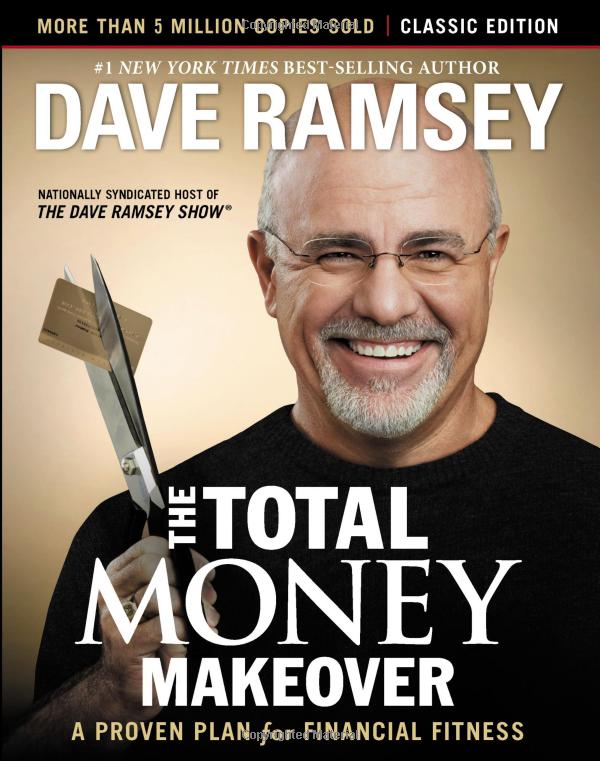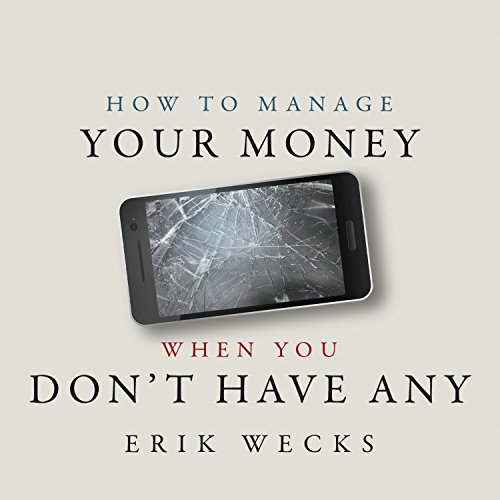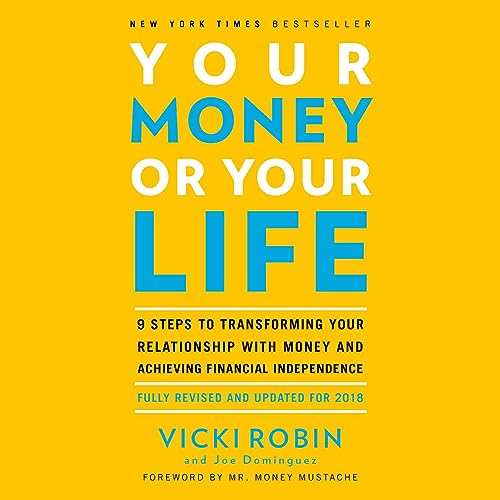Budgeting is an essential financial strategy that holds significance for both individuals and businesses. Whether you’re looking to improve your personal finances or enhance your business’s financial health, understanding budgeting is key. In this article, we’ll delve into the world of budgeting by exploring 15 of the best books available for learning efficient and effective budgeting techniques.
Table of Contents:
- 1. The Total Money Makeover by Dave Ramsey:
- 2. The One Page Financial Plan by Carl Richards:
- 3. I Will Teach You To Be Rich by Ramit Sethi:
- 4. How To Manage Your Money When You Don’t Have Any by Erin Wecks:
- 5. Your Money Or Your Life by Vicki Robin and Joe Dominguez:
- 6. Spend Well, Live Rich by Michelle Singletary:
- 7. You Need a Budget by Jesse Mecham:
- 8. Money Honey by Rachel Richards:
- 9. The One Week Budget by Tiffany Aliche:
- 10. The Automatic Millionaire by David Bach:
- 11. How To Stop Living Paycheck To Paycheck by Avery Breyer:
- 12. Broke Millennial by Erin Lowry:
- 13. The Simple Path To Wealth by J. L. Collins:
- 14. The Financial Diet by Chelsea Fagan and Lauren Hage:
- 15. Rich Dad Poor Dad by Robert T. Kiyosaki:
- Why Read Personal Budgeting Books?
- Conclusion:
- FAQs:
Budgeting is one of the most critical financial skills, enabling individuals and businesses to manage their money effectively and work towards their financial goals. In this article, we will explore 15 outstanding books that provide valuable insights into budgeting and finance.
1. The Total Money Makeover by Dave Ramsey:
“The Total Money Makeover” by Dave Ramsey is a comprehensive guide that emphasizes the importance of tackling debt and building savings before venturing into investments.
Ramsey’s approach encourages readers to adopt simple yet actionable steps for budgeting. It highlights the significance of prioritizing expenses and creating a personalized budget tailored to an individual’s financial circumstances. By providing a roadmap to financial stability, this book helps readers take control of their money.
2. The One Page Financial Plan by Carl Richards:
“The One Page Financial Plan” by Carl Richards takes a unique approach to budgeting by turning it into an enjoyable activity rather than a burdensome task.
The book suggests that readers transform challenges into opportunities to reduce expenses, making the journey toward financial stability more manageable and rewarding. Richards’ advice encourages flexibility in financial planning, acknowledging the unpredictability of the future. This book offers a refreshing perspective that makes budgeting a more engaging and empowering endeavor.
3. I Will Teach You To Be Rich by Ramit Sethi:
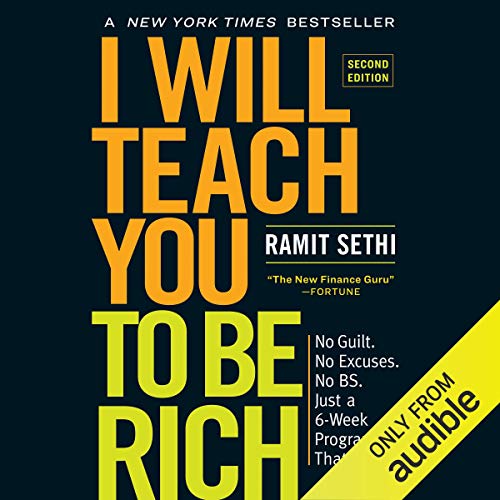
“I Will Teach You To Be Rich” by Ramit Sethi offers a six-week program to gain better control over personal finances. Unlike many financial books that discourage spending, Sethi’s approach focuses on optimizing spending habits.
The book provides actionable advice on crushing debt, setting up high-interest bank accounts, and automating finances for optimal efficiency. It offers a comprehensive yet relatable approach to financial advice, including detailed scripts for real-life scenarios.
4. How To Manage Your Money When You Don’t Have Any by Erin Wecks:
“How To Manage Your Money When You Don’t Have Any” by Erin Wecks is specifically tailored to individuals facing financial challenges. Rather than focusing on building wealth
This book addresses the modern pitfalls of consumerism. It guides readers on making the most of their current financial resources, emphasizing practical solutions for achieving stability without relying solely on future earnings. Wecks’ approach provides a lifeline for those struggling to manage their money effectively.
5. Your Money Or Your Life by Vicki Robin and Joe Dominguez:
“Your Money Or Your Life” by Vicki Robin and Joe Dominguez takes a unique approach by advocating for a shift in perspective. The book encourages readers to live on less and retire early, redefining the relationship between money and life.
It challenges the traditional notion of working longer for more income, instead focusing on optimizing life energy for better financial decisions. The book offers insights into transforming one’s relationship with money, prioritizing a fulfilling life over excessive earnings.
6. Spend Well, Live Rich by Michelle Singletary:
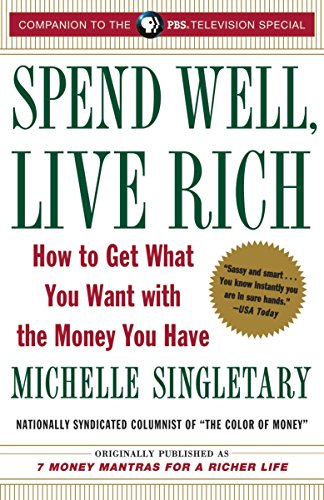
Formerly known as ‘7 Money Mantras,’ “Spend Well, Live Rich” by Michelle Singletary provides practical financial advice based on her personal experience.
Raised by a mother with a modest income, Singletary focuses on wise spending, debt avoidance, and increasing savings. This book offers relatable advice for achieving financial stability without solely relying on higher earnings. Singletary’s approach is rooted in personal wisdom and provides actionable steps for readers to implement.
7. You Need a Budget by Jesse Mecham:
“You Need a Budget” by Jesse Mecham simplifies budgeting with four straightforward rules. Mecham’s approach is particularly suitable for young adults and beginners. The book emphasizes giving every dollar a purpose, adapting to changing circumstances, accounting for true expenses, and aging money for future needs. Mecham’s budgeting method is straightforward, making it an excellent resource for those new to intentional financial planning.
8. Money Honey by Rachel Richards:
“Money Honey” by Rachel Richards offers a relatable and engaging approach to budgeting. Richards breaks down budgeting into seven actionable steps while maintaining an informal and friendly tone. The book covers topics like student loan management, credit building, and savings categorization. Richards’ approach is approachable and appealing, making it an excellent choice for readers who prefer a conversational style.
9. The One Week Budget by Tiffany Aliche:
“The One Week Budget” by Tiffany Aliche offers a seven-day plan to improve financial knowledge. The book provides real-life examples of effective budgeting and offers templates to create a personalized budget.
Aliche’s book is suitable for readers with limited time, as the lessons are concise and easy to follow. The structured approach helps readers develop a budgeting habit in a short period.
It’s best to read the 12 chapters of this book over the course of 7 days. Lessons and tips are short and concise, making it easy to finish even if you’re not much of a reader.
10. The Automatic Millionaire by David Bach:
“The Automatic Millionaire” by David Bach focuses on automating financial transactions to achieve long-term financial goals. Bach’s approach simplifies financial management by emphasizing automation for bills, savings, and leisure spending.
According to David Bach, the key to improving your finances is to automate your financial transactions as much as possible. From your bills, savings, and even the money you’re allocating for leisure.
Doing so lets you control where every dollar goes without actively thinking about every financial transaction you make.
11. How To Stop Living Paycheck To Paycheck by Avery Breyer:
“How To Stop Living Paycheck To Paycheck” by Avery Breyer delves into cultivating a success-oriented mindset and avoiding common budgeting pitfalls.
How To Stop Living Paycheck to Paycheck’ helps you master your finances by using a tested-and-proven budget system that only takes 15 minutes a week to maintain.
This book is highly recommended read for individuals who feel trapped in a paycheck-to-paycheck cycle, as it provides valuable insights into the fact that one’s financial standing is often determined more by their spending habits rather than their actual income.
12. Broke Millennial by Erin Lowry:
“Broke Millennial” by Erin Lowry is tailored to young adults, addressing the challenges they face when managing money.
Rather than focusing on long-term financial goals such as retirement or emergency funds, this book tackles how you can manage your money with your current paycheck and utilize credit cards to your advantage, not the opposite.
This book has 18 comprehensive chapters about the different budgeting aspects, including tips for handling student loans, salary negotiations, and why you should still start saving money despite having debt.
13. The Simple Path To Wealth by J. L. Collins:
“The Simple Path To Wealth” by J. L. Collins provides insights into building wealth with lower risk through index funds. Collins’s approach emphasizes avoiding market crashes and achieving financial freedom. The book offers a straightforward path to financial security through strategic investing and risk management.
14. The Financial Diet by Chelsea Fagan and Lauren Hage:
“The Financial Diet” by Chelsea Fagan and Lauren Hage introduces the concept of setting non-negotiable budgeting principles. The book emphasizes making money work for you, automating savings, and strategic spending. Fagan and Hage’s approach empowers readers to take control of their financial future by implementing practical strategies.
15. Rich Dad Poor Dad by Robert T. Kiyosaki:
“Rich Dad Poor Dad” by Robert T. Kiyosaki contrasts the perspectives of two father figures, highlighting the importance of financial education. The book emphasizes the significance of retaining money for financial freedom rather than focusing solely on income. Kiyosaki’s approach challenges conventional beliefs about money and wealth.
Why Read Personal Budgeting Books?
Personal budgeting books offer accessible ways to improve financial management, guiding readers toward their financial goals. While primarily focused on budgeting, these books also cover investing, saving, and debt management. Reading them can transform your perspective on money and optimize your financial situation.
Conclusion:
Mastering the art of budgeting is a vital step toward financial success. The 15 books mentioned in this article provide a wealth of knowledge and practical strategies to help you achieve your financial goals. By learning from these experts, you can develop effective budgeting techniques and build a secure financial future.
FAQs:
- Is budgeting important for everyone? Budgeting is essential for both individuals and businesses as it helps manage finances effectively and work towards financial goals.
- Can budgeting books improve my financial literacy? Absolutely. Budgeting books provide valuable insights into financial management, improving your understanding and decision-making skills.
- Which book is suitable for beginners? “The Total Money Makeover” by Dave Ramsey is a great choice for beginners, offering comprehensive yet beginner-friendly advice.
- Can budgeting books help with debt management? Yes, many budgeting books provide strategies to manage and eliminate debt while improving overall financial health.
- How can these books change my perspective on money? These books offer new ways of thinking about money, helping you prioritize spending, saving, and investing for long-term financial stability.

